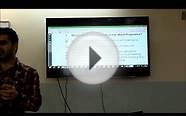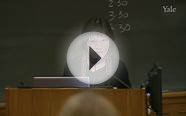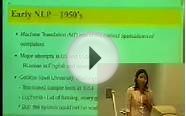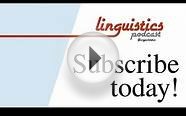
Cognitive Psychology semantics
Frame semantics, developed by Charles J. Fillmore, attempts to explain meaning in terms of their relation to general understanding, not just in the terms laid out by truth-conditional semantics. Fillmore explains meaning in general (including the meaning of lexemes) in terms of "frames". By "frame" is meant any concept that can only be understood if a larger system of concepts is also understood.
Fillmore: framing[edit]
Many pieces of linguistic evidence motivate the frame-semantic project. First, it has been noted that word meaning is an extension of our bodily and cultural experiences. For example, the notion of restaurant is associated with a series of concepts, like food, service, waiters, tables, and eating. These rich-but-contingent associations cannot be captured by an analysis in terms of necessary and sufficient conditions, yet they still seem to be intimately related to our understanding of "restaurant".
Second, and more seriously, these conditions are not enough to account for asymmetries in the ways that words are used. According to a semantic feature analysis, there is nothing more to the meanings of "boy" and "girl" than:
- BOY [+MALE], [+YOUNG]
- GIRL [+FEMALE], [+YOUNG]
And there is surely some truth to this proposal. Indeed, cognitive semanticists understand the instances of the concept held by a given certain word may be said to exist in a schematic relation with the concept itself. And this is regarded as a legitimate approach to semantic analysis, so far as it goes.
However, linguists have found that language users regularly apply the terms "boy" and "girl" in ways that go beyond mere semantic features. That is, for instance, people tend to be more likely to consider a young female a "girl" (as opposed to "woman"), than they are to consider a borderline-young male a "boy" (as opposed to "man"). This fact suggests that there is a latent frame, made up of cultural attitudes, expectations, and background assumptions, which is part of word meaning. These background assumptions go up and beyond those necessary and sufficient conditions that correspond to a semantic feature account. Frame semantics, then, seeks to account for these puzzling features of lexical items in some systematic way.
Third, cognitive semanticists argue that truth-conditional semantics is incapable of dealing adequately with some aspects of the meanings at the level of the sentence. Take the following:
- You didn't spare me a day at the seaside; you deprived me of one.
In this case, the truth-conditions of the claim expressed by the antecedent in the sentence are not being denied by the proposition expressed after the clause. Instead, what is being denied is the way that the antecedent is framed.
You might also like



|
Sammons preston Library of Early/Emergent Vocabulary Photographs Health and Beauty (Sammons preston)
|









